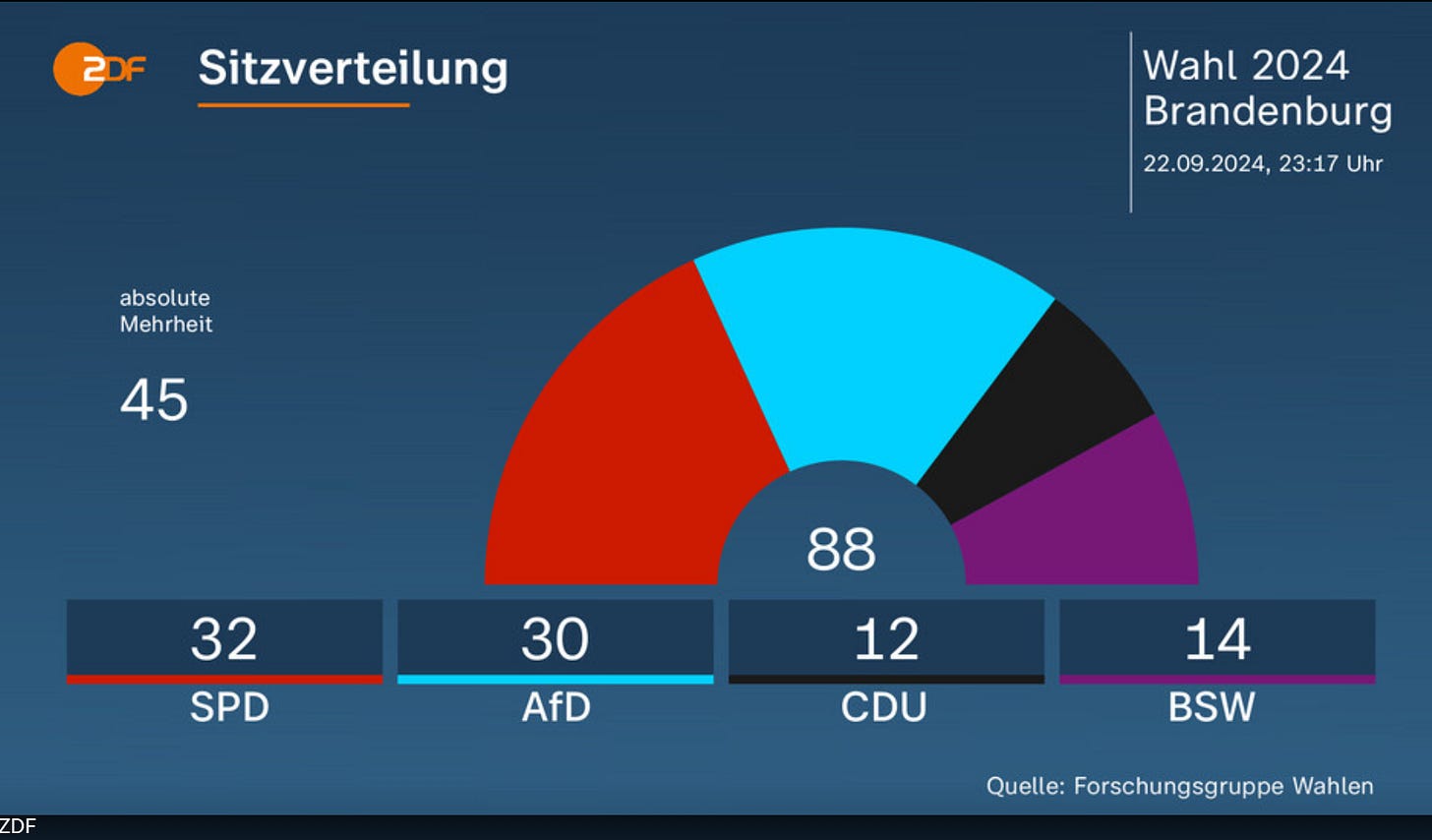Elections in Brandenburg
Chancellor Scholz declares victory even if the coalition still bleeds voters
Brandenburg, the state surrounding the German capital of Berlin, went to the polling stations yesterday. This state is in the old East Germany but as it is close to the liberal and prosperous capital of unified Germany, it is normally expected to vote less extreme than other parts of the east. Just a few weeks ago, the election in the two other eastern states to the south, Thuringia and Saxony, tilted their votes so much to the right that the traditional ruling parties Social Democrats SDP) and Christian Democrats (CDU) could not possibly rule, not even together in a coalition. They have not formed governments yet but it is still to be seen if the brand new BSW party of ex-communist Sahra Wagenknecht will take on the role as king-maker as they have the deciding chunk of seats between the left and the right.
Sanssouci palace in Potsdam, capital of Brandenburg. Statue of Venus. Photo: Rudolf Böhm, Public domain.
It was a scare for the traditional parties, but last night it turned put the result was slightly less scary. SPD declared victory with 30.9% of the vote, a plus of 4.7 points. AfD, the right-wing opposition party also won with 29.2%, also with a plus of 5.7 points. Thus, SPD remained largest but only so, while AfD grew by a bigger share but it still slightly smaller.
The problem is, however, that the two ‘winners’ of the election are on opposite sides of the political center, the SDP saying they will ‘never’ collaborate with AfD. This may have to change, because the result makes it almost mathematically impossible to form a majority government without including both of these two parties, willing or not. The result in terms of seats looks like below, from the state-affiliated ZDF channel:
45 seats are needed for a majority, SPD and CDU together have only 44. Since at least SPD has said they will ‘never’ collaborate’ with right-wing AfD, the only way is to take in the new BSW party that is founded by Sahra Wagenknecht and goes under her name just with a Bündnis (Alliance) in front. Someone will have to devour a camel, as we say. Time will show, and as said, the two southern states also have huge difficulties in forming a government.
Federal Chancellor Olav Scholz is currently in New York for the UN ‘Summit of the Future’, and the General Assembly. His formal statement is expected later in the day. But his first reaction according to Der Spiegel magazine was joyous and hopeful:
On Sunday evening, Scholz at least commented briefly on the result. "It's great that we won," he said in New York. And: "I felt that something was happening." In a short "Politico" video, he also said: "A great result, very great for the SPD, and for all of us."
Scholz is clearly elated as he was becoming under heavy criticism for his leadership, or lack of the same, of the federal coalition government. The local result in Brandenburg may be a temporarily positive sign, but it is not likely to solve the leadership problem for Scholz, as the coalition parties keep losing support in one election after the other.





